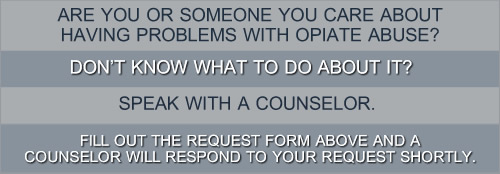
Experiencing Opiate Withdrawals
Drug withdrawals can be very serious, especially if using a drug which is in the opiate family. Opiate withdrawal symptoms are quite different from other drugs, this is mainly because of the physical aspect of the drugs. Individuals who are addicted to drugs such as heroin, morphine, vicodin and other opiates - even methadone, should seek medical treatment should the withdrawal symptoms get out of hand. Knowing the signs of withdrawal will help you or your loved one to manage much better.
Opiates Use
Opiates are often used for pain medication, which is why there are so many prescription drugs in this family. However, it doesn't matter if the drug is legal, or a street drug because detoxing and withdrawals are pretty much the same. The only difference is due to street drugs being mixed by dealers, there is no way of knowing exactly what you may have in your system.
Opiate Withdrawal Symptoms
Knowing the signs of opiate withdrawals is important. This way you are able to minimize the effects, or seek medical attention. Some opiate withdrawal symptoms are:
- Chills
- Sweating
- Nausea
- Vomiting
- Stomach Cramps
- Diarrhea
- Foaming at Mouth
These ailments go along with opiate withdrawal. Should your condition get out of control, it is advised to get medical help. Withdrawing from opiates can be a fatal incident, as your body goes through many different phases. Remember, no body knows your body like you do, so if you feel as you can't handle what you are going through it is wise to get help immediately.
One Day Won't Hurt
When a person is addicted to opiates, they will feel okay as long as they have the drug on a daily basis. This is particularly simple if it is being prescribed as a pain medication, however if it is heroin - a street drug, things could get a bit frustrating to say the least. Usually missing an opiate for one day won't be so bad, unless the user is highly addicted.
The First Day Without
On the first day without opiates, a person will normally be okay, however they will experience an ache here or there, and a lack of energy. This can easily be lived through, as it probably will mimic the common code, however it is day two which things may get rocky.
Day Two
Day two of opiate withdrawals will come with a lack of energy. The drug addict will not want to do anything except of course hunt down the drug. The chemicals which are left in the body are leaving, therefore the addict begins to get chills, sweats, stomach cramps and loss of appetite. Extra saliva is present and some foaming of the mouth may occur when speaking. There will also be mood swings, it is this day which the addict will begin considering medical detox.
Day Three
The third day of opiate withdrawals will probably be the worst. After a night of night sweats and chills, you wake up in a cold wet bed. The addict will have no energy at all, with no appetite to eat. The mood will now be terrible, as there is nothing on their mind besides medicating themselves. On day three, there will also be diarrhea as the body begins to totally get rid of the toxic chemicals. Stomach cramps will be unbelievable, many with diarrhea as the end result. Nausea and vomit may be present as well, for the same reason as diarrhea- to rid the body of toxins. The addict may experience regurgitating, and bring up a lime green substance which is stomach acid. This can be very debilitating to the addict, which is why many at this point will promise never to use again. Sure, they mean well at this point, but often does not happen. The good part is after day three, things begin to look up again. The body has gotten rid of a lot of the chemicals which it had been addicted to, and it is now time for healing.
- Questions?
